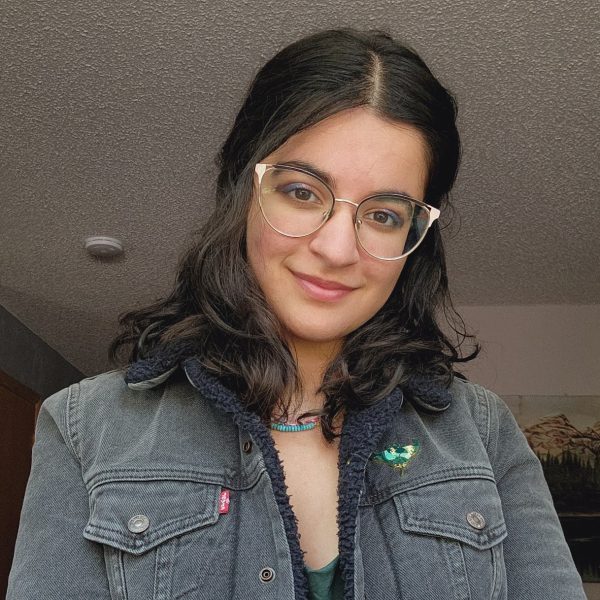Guest electric harp concert: musical innovation live on stage
With the stage lit in purple, Kracum Hall welcomed harpist Leonard Jacome on Saturday, April 15. The instrument he plays is new to Carleton and the world as a whole: the electric Venezuelan harp. Both a composer and performer, Jacome is the inventor of this 35-stringed instrument and played for a highly receptive audience.
Jacome first played alone, allowing the audience to become familiar with his instrument’s luscious sound and his artistry. During the second piece, he introduced a looping machine and played not only the harp, but maracas and a cuatro — a Latin American instrument resembling a small guitar — creating a one-man band.
This piece displayed the full range of sound a harp can produce. From the sparkling quality of the highest to the deep resonance of the lowest strings, Jacome’s hands moved between a classic, lyricalness typical of the harp and a quality reminiscent of an electric guitar riff. The end of this piece gained a standing ovation from the audience.
The rest of the concert featured an unlikely combination of instruments with Professor Gao Hong and previous Guest Artist Issam Rafea, on the pipa and oud respectively, joining him onstage.
This latter half of the performance consisted of duets and trios. Both Hong and Rafea individually played with Jacome first, then, in the trios, they rotated which person began.
Each of these performances were improvised. After the first note, the rest was unpredictable, the mood fluctuating and swelling as the artists felt like it.
These instruments are very different from one another: the pipa is fretted while the oud is not, allowing Rafea to play quarter tones, and each string of the electric harp has a designated pitch that can be made sharp or flat with a lever.
Despite the differences of their instruments, the artists watched and listened to each other attentively, turning their heads to focus on each other in some places and smiling and nodding in others. Hong noted that each of the players were from different cultural backgrounds: Leonard from Venezuela, Issam from Syria and Hong from China.
When introducing these trios, she described the starting player as “taking us to his homeland.” Each player would begin alone, playing with a quality typical of their cultural music. Then the other two players would listen and respond with their own take on what they heard. The music evolved from there.
When Rafea played, Jacome responded by moving the pitch-changing levers while different notes played, mimicking the tonal quality of Arabic music. This moment of teasing sparked laughter both onstage and in the audience. Similarly, Hong and Rafea emulated the strumming quality of the harp. When Hong “took us to China,” the oud and harp players mirrored the rapidity of her playing style.
Gao Hong described improvisation with others, especially musicians she’s just met, as part of her process. Of the improvisation, she told the audience throughout the concert that “I don’t know, he don’t know, you don’t know. We find out together.”
This process and Hong’s passion for music from all cultures are what make her music work. Her previous albums recorded with Issam, “Life as Is” and “From Our World to Yours,” were also improvised; both received Global Music Awards.
The performance this past Saturday was a celebration of diverse, innovative and unconventional approaches to music-making.

I'm an English major with interests in Creative Writing and Middle East Studies minors. I love all things related to art whether that be writing, drawing,...










